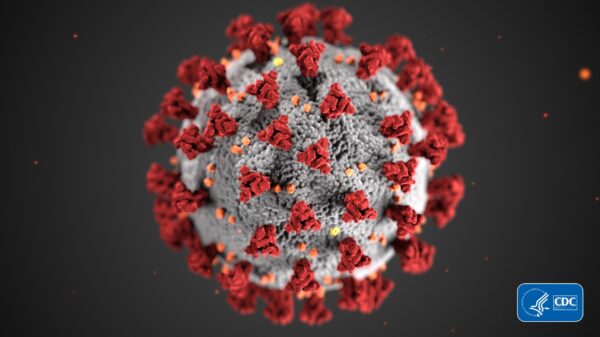
A newly formed company is enlisting a long-shelved drug as a potential treatment for Covid-19, hoping that its mechanism of action succeeds against the disease caused by the SARS-CoV-2 virus after failing in a hepatitis C study more than a decade ago.
The company, ViralClear Pharmaceuticals, is part of NeuroClear, itself a subsidiary of Westport, Connecticut-based BioSig Technologies. ViralClear said last week that it had appointed as executive chair former Celgene chief medical officer Jerry Zeldis, who had acquired rights to the drug, Vicromax (merimepodib), through another company he founded. The company plans to file an investigational new drug application with the FDA “imminently” and begin the Phase II study in the near future, CEO Nick Spring said in a phone interview, adding that cell culture studies have shown “powerful” antiviral activity for the drug against the Covid-19 virus.
“We’re not a pop-up pharmaceutical company,” Zeldis said in the same interview. “We popped up very quickly, but I see a long-term sustainability to what we’re doing.”
Spring said the company is in the middle of raising a $25 million financing. Zeldis added the money is being raised from wealthy individuals and some institutional investors.
“It’s well underway,” Spring said. “Quite frankly, this is the fastest I’ve ever started a company or raised money.”
ViralClear joins the ranks of several companies that have drugs or vaccines in or nearing clinical development for Covid-19, such as Gilead Sciences, Regeneron Pharmaceuticals and Sanofi, Moderna, Vir Biotechnology and others.

A Deep-dive Into Specialty Pharma
A specialty drug is a class of prescription medications used to treat complex, chronic or rare medical conditions. Although this classification was originally intended to define the treatment of rare, also termed “orphan” diseases, affecting fewer than 200,000 people in the US, more recently, specialty drugs have emerged as the cornerstone of treatment for chronic and complex diseases such as cancer, autoimmune conditions, diabetes, hepatitis C, and HIV/AIDS.
Merimepodib was developed when Zeldis was at Celgene and subsequently sold to Boston-based Vertex. In 2004, Vertex launched a randomized, double-blind, placebo-controlled Phase IIb study of the drug, also known as VX-497, combined with Roche’s Pegasys (interferon alfa-2a) and ribavirin versus the latter two drugs alone among chronic hepatitis C patients not responding to the two-drug combination. The trial was negative: Results published in the journal Hepatology showed that the percentages of patients achieving sustained virological response after 72 weeks were similar between the merimepodib and placebo arms. The drug was subsequently shelved.
“I don’t think the folks back then appreciated the appropriate therapeutic target for the drug,” Zeldis said.
Because of the drug’s mechanism of action, Zeldis said it is probably best suited for viral diseases that cause an explosive growth of viral load, which would include Covid-19. The drug is an inosine-5’-monophosphate dehydrogenase (IMPDH) inhibitor, which reduces the amount of guanosine inside cells, which viruses require in order to replicate, thereby making cells resistant to infection. Theoretically, its mechanism as a host-directed therapy means the virus would be unable to develop resistance mutations.
The 2009 paper stated that side effects for merimepodib were similar to those of Pegasys and ribavirin and included nausea, joint pain, cough, difficulty breathing, neutropenia and anemia, which were more common in the Phase IIb trial among those taking the three-drug combination. However, Zeldis said most of the toxicities that would give pause occurred after one or two months of treatment, while it is estimated that Covid-19 therapy would require three to 14 days of treatment with the drug.
According to a paper published in January 2018 in the journal Antiviral Research, cell culture studies showed merimepodib was able to suppress replication of Zika, Ebola, Lassa, Chikungunya and Junin viruses.
Photo: Centers for Disease Control and Prevention













